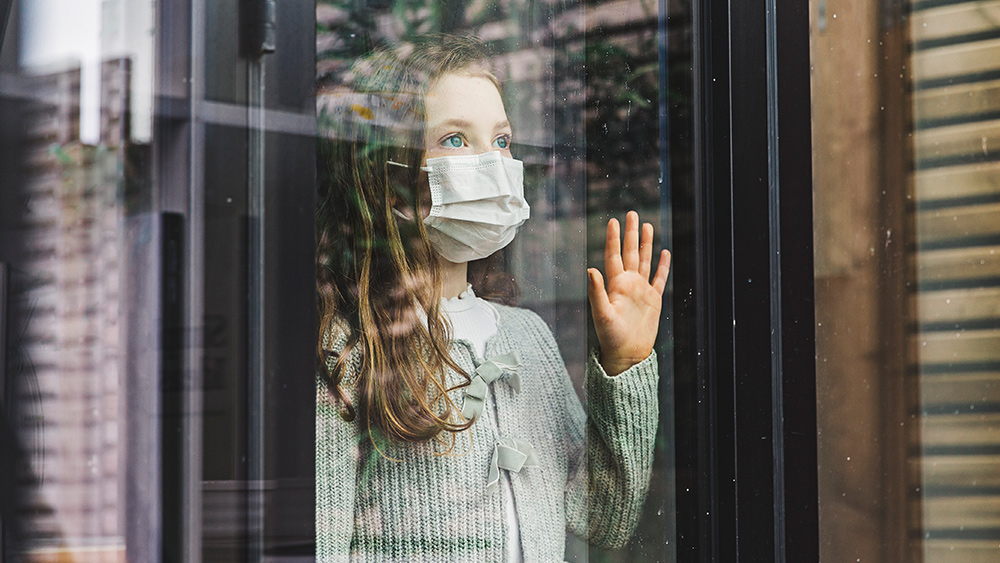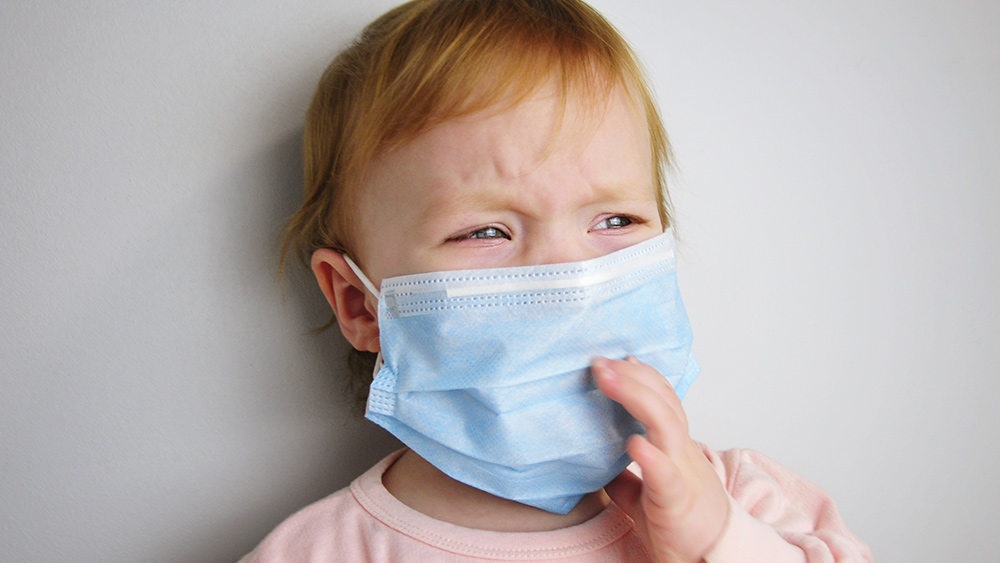Children born during the COVID-19 pandemic have significantly lower IQ scores, most likely due to masking of mothers
08/18/2021 / By Arsenio Toledo

A recent study has found that children born during the Wuhan coronavirus (COVID-19) pandemic have significantly lower IQs. The IQ scores of children are affected by how they develop during the first 1,000 days of their lives. This is the most crucial portion of their young development.
During their first 100 days, a variety of factors help improve their development. Environmental factors, including the mental and physical health of the mothers, nutrition, stimulation and the presence of supporting caregivers. Unfortunately, the COVID-19 pandemic lockdowns have made it difficult for children to grow up in environments with plenty of positive stimulation. Nurseries, playgrounds and other places where newborns can interact with the world around them were shut down.
This has made pandemic-era children score shockingly low on tests designed to assess their verbal, motor and overall cognitive development.
The sudden decrease in IQ scores is practically unheard of
The study was conducted by researchers from Brown University, headed by lead study author Sean Deoni, an associate professor of pediatrics at Brown. Deoni’s study analyzed the cognitive performances of 672 children born in Rhode Island. Of these children, 188 were born after July 2020, 308 were born before Jan. 2019 and 176 were born between Jan. 2019 and March 2020.
All children included in the study were born without developmental disabilities and were carried to full term. Most of the children included in the study were White. (Related: Covid mortality risk in children is essentially ZERO, but “scientists” don’t care and still want to mask all the kids.)
In the decade before the COVID-19 pandemic, the mean IQ score on standardized tests for children between the ages of three months and three years was around 100. The children in the study had an average IQ score of 78.
“It’s not subtle by any stretch,” said Deoni. “You don’t typically see things like that, outside of major cognitive disorders.”
“The infant brain is … born with immense capacity to learn, remodel and adapt, but is sensitive and vulnerable to neglect and environmental exposures that begin even before birth,” wrote the study authors.
Deoni and the other study authors speculated that the main reason the children scored significantly worse is due to spending so much time inside with their overwhelmed parents. The increased isolation and stress that parents feel during this difficult time can have a lasting effect on the mental and cognitive progress of children.
This can be seen in their IQ scores. Children who were born before the pandemic did not present with any significantly lower verbal, non-verbal or other cognitive development scores. This suggests that the pandemic conditions are hindering children more during the earlier stages of their development.
“Parents are stressed and frazzled … that interaction the child would normally get has decreased substantially,” said Deoni. He added that the lack of positive stimulation that children are supposed to be experiencing has created significant setbacks that will be difficult for children to overcome.
Certain other factors also affected the IQ scores of the children. Those from lower socioeconomic backgrounds, for example, fared worse in the tests than their more affluent peers. The authors suggest that this may be due to the presence of family or social support, which can contribute to maternal well-being. This, in turn, can affect infant temperament, behavior and cognitive development.
“Perhaps not surprising that children from lower socioeconomic families have been most affected as this resonates with many of the other financial, employment and health impacts of the pandemic, said Sir Terence Stephenson, a professor of children’s health at the University College London.
Children of mothers who had collegiate and post-graduate degrees were also less likely to suffer from the negative impacts of being born during lockdowns. In addition, male infants were also found to be more affected by the pandemic than female infants. It is still unclear if these lower cognitive scores will have long-term impacts on children. Even the researchers are not certain if the cognitive impairments are temporary and will normalize as soon as society returns to normal and the lockdowns are lifted, or not.
The first few years of life are crucial to the cognitive development of children. Deoni points out that the older the child gets, “the ability to course-correct becomes smaller.”
Learn more about how the COVID-19 pandemic and lockdowns are affecting the development and well-being of children by reading the latest articles at Pandemic.news.
Sources include:
Tagged Under: brain function, brain health, children's health, coronavirus, coronavirus lockdown, covid-19, discoveries, infant health, lockdown, mental health, pandemic, research
RECENT NEWS & ARTICLES
BrainFunction.News is a fact-based public education website published by Brain Function News Features, LLC.
All content copyright © 2018 by Brain Function News Features, LLC.
Contact Us with Tips or Corrections
All trademarks, registered trademarks and servicemarks mentioned on this site are the property of their respective owners.





















